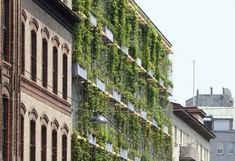Project start – Technical Critical Elements in Urban Spheres (TecEUS)
The project aims at the systematic quantification of drivers, sources, pathways and sinks as well as environmental and human health threats of technology-critical elements (TCEs; e.g. indium, gold, antimony, neodymium) in the urban spheres of Vienna. For the first time, TCE fluxes will be studied at urban scales. TCEs are key components in novel technologies (e.g. electronic devices, cars, thin-layer photovoltaics, nanoparticles and contrast agents in medical imaging). Due to their abundant use, TCEs are increasingly released into the environment during manufacturing, use and disposal. Substantial knowledge is missing with regards to current levels found in the environment, environmental cycles and potential health hazards of TCEs. The potential toxicity to human health and the environment requires the development of analytical techniques, monitoring and scenario modelling to inform precautionary policy and requirements for innovation.
Within this project, TCEs levels will be measured systematically in water, soil, plants, aerosol, supported by citizen science approaches involving residents and gardeners. Novel analytical techniques based on mass spectrometry will allow to detect the low levels of TCEs expected in natural samples. Green façades and plants will be evaluated for the efficiency to bind airborne TCEs both in field studies and in controlled greenhouse experiments. A simplified socio-ecological model will be developed depicting the biophysical stocks and flows of TCEs and their human health implications along with the development of prospective scenarios and monitoring requirements. Maps of exposure and emissions will be made publicly available.
The transdisciplinary project combines analytical environmental chemistry (Montanuniversität Leoben, Dept. of Chemistry), landscape engineering (University of Natural Resources and Life Sciences, Vienna; Institute of Soil Bioengineering and Landscape Construction), socio-ecological modelling (University of Natural Resources and Life Sciences, Vienna; Institute of Social Economy) and human health (Medical University Vienna, Centre of Public Health).
For further information please visit: www.teceus.at

